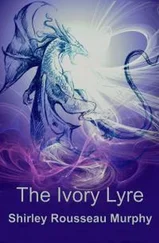Dear Charlie Gribble,
I'm sending you the parts you're looking for. The cost is itemized at the bottom of the letter. I agree, it's hard to find parts for antique planes in a small town — or in any town, for that matter. So I am sending you some information on the Antique Model Club, and some ads from their magazine. One small manufacturer still makes these spark plugs. The magazine has a want ad column, too, and toe get parts from each other as well as from the ads. If you are rejuvenating an old plane that has had a good deal of use and been out in the weather as you said, there's a chance your condenser will be faulty. Harry Jones Company, in Millville, Oregon, makes condensers, and you can write to them for one and send a money order. I'm enclosing their ad, too, with the prices.
Good luck to you. I would like to hear more about your project. 1 hope your old biplane — whatever she turns out to be — gives you a lot of good flying.
Your friend, Mary Starr Colver.
That afternoon Charlie, stopping at Hobie's Hobby Shop for some solder and another wrench for Rory, stared at the shelves in front of him and let out a yelp. "Oh boy! How dumb can you get! I never even thought to look in here!'"
"Look for what, Charlie?" Hobie was down under the counter getting the wrench.
"Right in front of my nose! I'll bet anything it's the right size!"
Hobie rose from behind the counter and followed Charlie's gaze. "What're you looking at, Charlie? Them turpentine cans? They've been sitting on that shelf in that same spot for two years."
"Could I see that one a minute, Hobie?"
Hobie handed him the can.
He measured it with his finger. With the length of his hand. "I think it's right. I think so."
"What d' you need it for Charlie?"
"Gas tank. Remember, we looked and you can't get any over sixteen ounces."
"What're you going to do, fly that thing around the world?"
Charlie stared at Hobie. "Maybe," he said. "Can I take it Hobie, and if it isn't right bring it back?"
"Long as you don't use up the turpentine."
When Rory saw the can, he let out a war whoop, got the ruler, measured the can, then scowled up at Charlie. "You mean to tell me the flappin' thing was there all the time! That you saw it there, and you . . ."
Charlie hung his head. "I thought you could find a can. And then when you couldn't, and you asked me to buy one and Hobie said he couldn't get any that big I was in a hurry and . . . and I'm sorry, Rory. I'll bet I've seen that can a thousand times and I never even— oh nuts!"
"It's okay, sonny," the kangaroo rat said, "We've got it now. This here's going to make a super gas tank! Come on, sonny, you take it over the other side of the dump and empty the turpentine out where it won't stink the whole place up. We'll rinse it out good, cut a hole for the gas line—Did you get that solder I asked for?"
"Yeah. But why so much?"
"I was about ready to cut up one of those other cans and build a flappin' tank, sonny."
While Charlie went to empty the turpentine can, Rory dug out a connection from the heap of parts he had accumulated and found a length of gas line. Then he built up a hot fire in the hubcap and laid half a dozen nails around it with their points well into the embers. By the time he and Charlie got the hole cut, the nails were hot enough to solder with.
Holding a nail wrapped in rag, Rory flowed melted solder into the seams as Charlie watched. When he was finished soldering, they tested the tank for leaks by filling it with water. Then they drained it well and laid it near the fire until it was quite dry inside, fixed the three leaks, filled it with water again, emptied and dried it again, and finally were ready to install it.
And that was the hardest job, getting the tank into the front section of the fuselage. Rory removed the seats from the cockpits and the support between the cockpits, but even then the tank was a tight fit. At last, though, it was secure. They got the gas lines hooked up. They replaced the support and the seats —and Crispin began to fuss. "What if the gas explodes, Rory? What will we do then?"
"If that tank explodes, sonny, there won't be enough left of either one of us to worry about it."
That seemed to settle the lemming. At least it shut him up. But he must have gotten out on the wrong side of the bed that morning because soon he began to complain about the rear cockpit not having any controls to fly the plane. "I'll just be a passenger! What if something happens to you, Rory? What if you get sick? You'll have all the controls, and I won't be able to reach them. We could crash, Rory, and I wouldn't be able to . . ."
"You would take off your seat harness, sonny, climb over the fuselage to the front cockpit, reach around me, and fly her! Just see if you wouldn't! Just like an old stunt flier. Like one of them wing walkers." Rory grinned, but Crispin was so disappointed that he could not fly the Fox that he began to chitter and would pay no attention to Rory.
"There ain't enough room to run cables from the controls back to the second cockpit, sonny! I had enough trouble rigging them for one. With all the cogs and gears and levers, a second set of gears might foul up the first and—well there'd be no end to the complications."
Charlie picked the lemming up to try to cheer him, but Crispin scowled with such fury that Charlie thought he would bite. It had been a long time since Crispin had laid a tooth on him. "Oh, come on, Crispin! I'd like to fly her too. Don't you think I'd like to climb in the Fox and take off with you? I'll be left behind all alone!"
That made Crispin stop glaring, but he refused to say anything to comfort Charlie and was still sulking when Charlie left late in the afternoon.
The lemming would have sulked until bedtime if the starlings had not begun to gather around the hangar early in the summer evening just as the day began to turn cool. The dark birds lined up on refrigerators and bedsprings and tires and stared silently down on the closed hangar, and some crowded right up to the plywood and stared in through the crack. Rory glared out at them. He'd like to lob a rock at those beady eyes, but he guessed a rock chucked at that bunch would only rile them into another wild attack. What the flappin' heck did they want? What fascinated them so? They hung around until roosting time, then flew off.
"Why did they do that, Rory?"
"I don't know, sonny. Maybe they're bored with life. They've got no more birds to bedevil—they've driven all the decent birds away—so now they're picking on us. You know, sonny, boredom is a sign of an empty mind. And those birds have the emptiest minds going."
CHAPTER 15
the birds were back the next morning, two dozen of them perched on the trash hills when Rory and Crispin awoke. They hung around until noon, coming in shifts of sometimes two or three, sometimes so many they made a solid black line along the horizon of trash. And as they waddled up to the plywood to peer in, their bow-legged, swinging walk was ugly and insolent. They flew off when Charlie arrived.
"What do they want?" Charlie said, staring after them. "What were they hanging around for?"
"Something in their dim minds makes 'em like to bother folks, sonny. I suppose they can't help it," Rory said irritably. Charlie guessed Rory had had about all the starlings he could take.
But as annoying as the starlings were, they forgot them completely the day the condenser arrived.
Charlie had written off to the Harry Jones Company to order it the day they received the letter and package from Mary Starr Colver. He had sent a money order for the condenser, and then had written to Miss Colver, too, and sent her a money order for the points and plugs and thanked her for them. He had told her that the biplane had turned out to be a 1924 Fairey Fox. He'd told her how the plane was coming on; and when he spoke of working on the plane, he said "we," but of course he didn't tell her who "we" meant. He had thanked her for the information about the condenser manufacturer and the Antique Model Club, and said he hoped the Fox would be flying soon.
Читать дальше
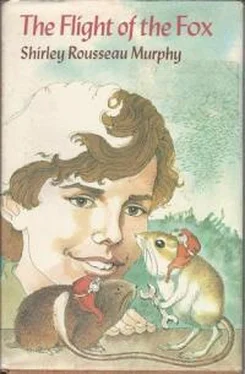
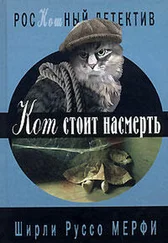
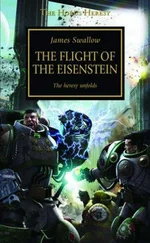

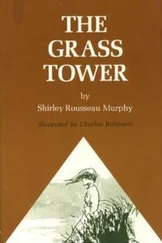
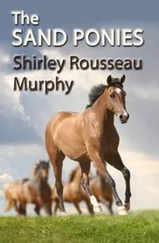
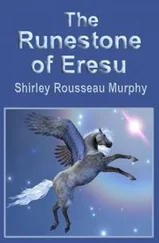
![Ширли Мерфи - The Shattered Stone [calibre]](/books/436059/shirli-merfi-the-shattered-stone-calibre-thumb.webp)

